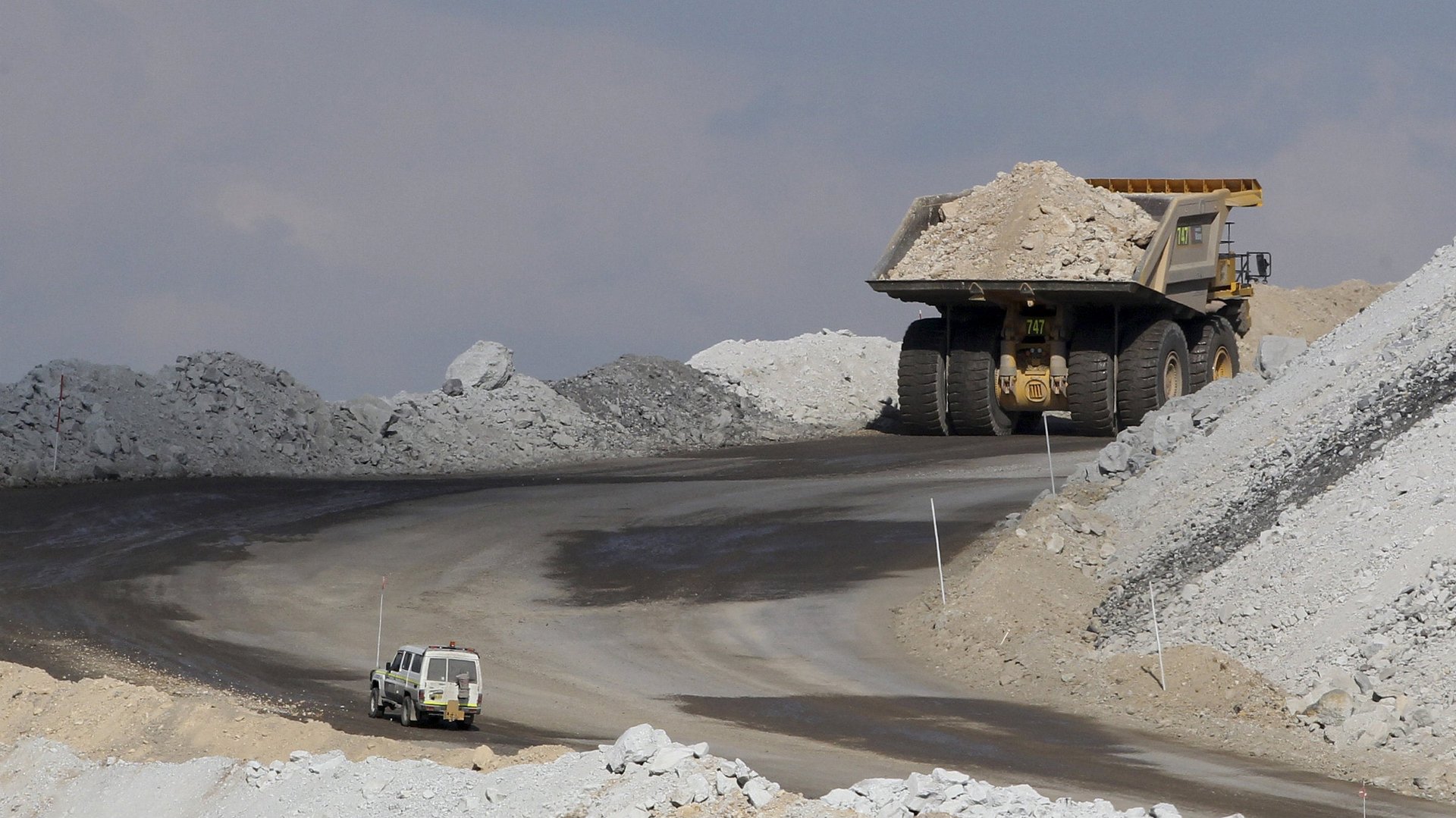Why nearly half of China’s overseas mining deals fail
Chinese mining companies are having trouble sealing the deal. A total of $45 billion in overseas acquisitions have failed to close over the last five years, according to a Bloomberg study. The failure rate was about 42 percent by value, compared with a global average of 32 percent.


Chinese mining companies are having trouble sealing the deal. A total of $45 billion in overseas acquisitions have failed to close over the last five years, according to a Bloomberg study. The failure rate was about 42 percent by value, compared with a global average of 32 percent.
The latest deal to crash was Sichuan Hanlong Group’s bid for Australia’s Sundance Resources, which foundered because Hanlong’s founder is reportedly being detained for protecting his brother in a murder investigation (or perhaps getting on the wrong side of China’s leaders.)
Usually Chinese deals collapse for less colorful reasons. One problem is that the companies, under orders to deploy the nation’s foreign exchange reserves, often rush into acquisitions without fully understanding how long it will take to win regulatory approval from foreign governments. And timing is everything (pdf p.13) for M&A deals in this sector, because the value of mining assets fluctuates with volatile commodity prices.
Chinese companies sometimes also fail to assess the political climate overseas. In January, China National Gold was forced to withdraw an offer for Tanzania’s largest gold miner, African Barrick Gold, after the African country’s government made an abrupt decision to levy a 20% tax on the sale.
Not included in the Bloomberg study are the Chinese mining bids that never make it to the handshake stage. Cathay Fortune, a Chinese private equity firm, had a bid for African copper miner Discovery Metals knocked back last October for being far too cheap. Cathay, as the FT noted here (paywall), had “little experience in mining and had never operated a mine.” Whether Chinese firms can learn from these mistakes and gain the necessary experience has yet to be determined.